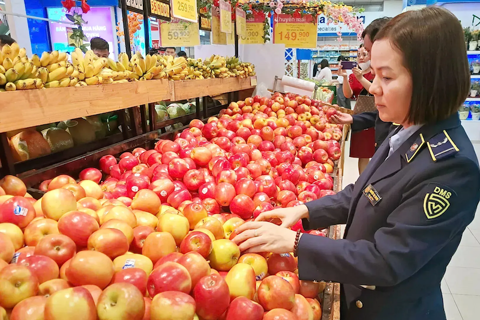Key issues discussed for better e-commerce tax collection
Experts have analyzed the key problems that have prevented better collection of tax on electronic transaction in Vietnam.
Poor cash flow monitoring is one of five key problems that have hindered tax collection on e-commerce activities in Vietnam, officials said at a seminar on September 29.
| It has remained difficult for Vietnam's tax agencies to collect tax from e-commerce trading activities. Photo: The Hanoi Times |
It has remained difficult to collect taxes from e-commerce activities despite the rise in cashless transfer nowadays, Nguyen Thi Lan Anh, Director of Tax Administration Department on small and medium enterprises, business households and individuals, said, adding that people still prefer cash payment.
The Government also finds it challenging to supervise sources of income and taxpayers though anyone launching online shops on different e-commerce platforms is subject to pay tax. In addition, the tax calculation is complicated for income from the sale of software or content monetized online, Anh noted.
Addressing the issue, Nguyen Thi Thanh Huyen, Director of the Electronic Information Department at the Ministry of Information and Communications (MIC), pointed out the problem of how to manage the cash flow.
There should be a system for the Vietnamese agencies to cross-check all transactions that are made online on both local and cross-border e-commerce platforms. The system will also help related agencies monitor whether the tax payments are subject to existing rules or not and whether there are any tax frauds, she noted.
Among the most helpful solutions is the tax collection at source (TCS) for e-commerce transactions, Anh said.
The TCS is an amount of money withheld on payment by a seller when selling goods at the time of transaction settlement.
“The method is good enough and already in use by some nations, including Argentina, Ecuador and Paraguay, as suggested by the Organization for Economic Cooperation and Development (OCED),” Anh said.
The Vietnamese Government needs to improve its legal standards, amend the rules on VAT, individual income and tax management, as well as issuing instructions and other related regulations, she added.
"Tax-related agencies will look into the TCS solution, as it will remit money directly to the Treasury every time a transaction is made," the Treasury official said, adding that it will save time and work for collectors and taxpayers.
To achieve the expected results, the government needs to improve the technology applied in tax collection that meets Industry 4.0 standards, said Dr. Hoang Van Cuong, Vice Rector of the National Economics University. Vietnam has achieved good results in collecting personal and organizational information on digital platforms, he said.
“There are many technologies, typically artificial intelligence (AI) and Big Data, that are useful to detect tax frauds for better management,” Cuong said, noting that modern technologies can facilitate the Government to manage and process the data quickly.
"The technologies can be used across a wide range in a well-developed legal system so that tax agencies can track and analyze personal data, thus finding out who is involved in e-commerce transactions."
In addition, the Government should consider administering all tasks on an e-tax platform, which reduces paper workload for tax officials and create a tight connection with other ministries and sectors for better tax collection, the vice rector said.
Other solutions that the Government may think of including the improvement of the legal system that facilitates better management of economic and business-doing activities and helps Vietnam comply with international regulations and practices, he said.
The tax agencies must be among the pioneers that adopt and integrate technological solutions into their operations so that tax collection would be easier for both authorities and taxpayers, Cuong added.
Meanwhile, Huyen shared that MIC has signed an information exchange agreement with the Ministry of Finance on a number of activities, including tax collection and management. The ministry is also working with provincial tax units in the likes of Hanoi and HCM City for information exchange and to address taxpayers before they conduct trade activities on cross-border digital platforms, she said.












